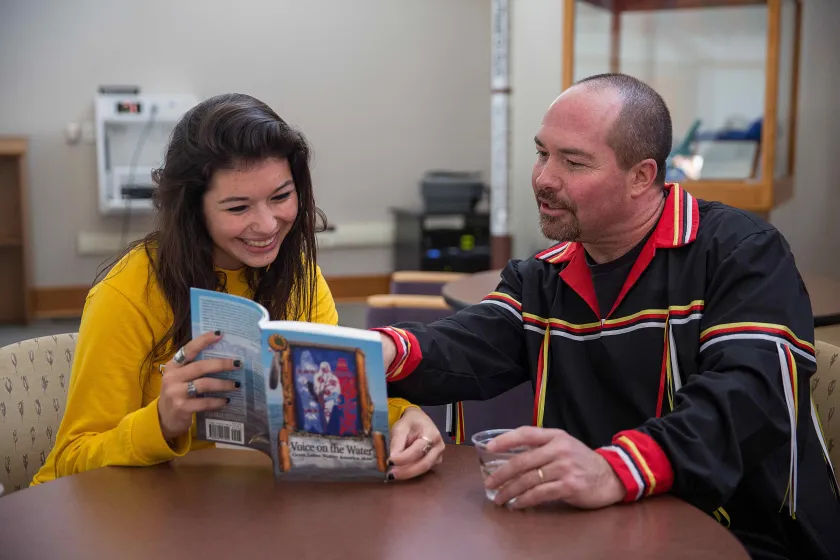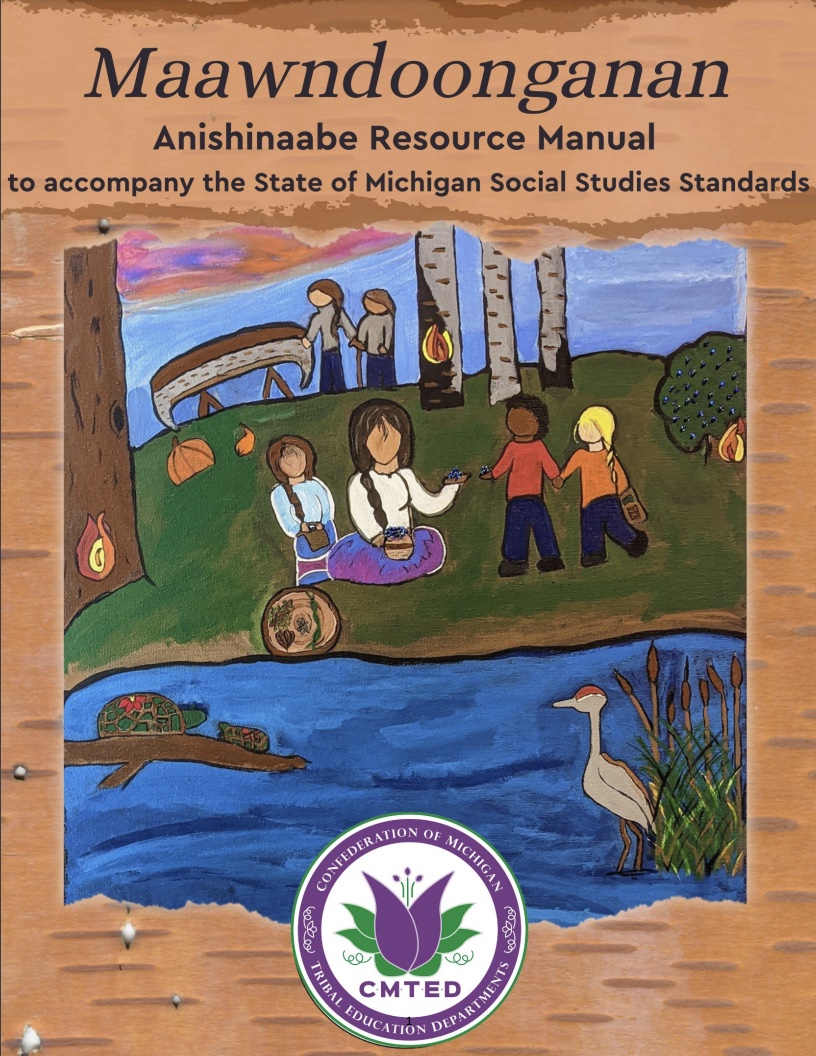Northern Michigan University's Center for Native American Studies assisted in the development of “Maawndoonganan,” an Anishinaabe resource manual created and vetted by Indigenous peoples to support educators in implementing Michigan social studies standards. A webinar on using this first-of-its-kind educational resource guide was presented by the Confederation of Michigan Tribal Education Departments (CMTED) on June 29.
“Maawndoonganan” translates to “the gathering of information to share with people.” The manual is available online and contains CMTED-endorsed instructional materials including videos, books, websites and podcasts. It intentionally focused on the more inclusive social studies standards adopted by the State Board of Education in June 2019 that reference Michigan's 12 federally recognized tribes.
NMU Professor Martin Reinhardt, who had performed a previous content analysis of Michigan curricular standards, was asked to engage students in his fall 2020 Native American education course in searching for internet and other resources that would help teachers meet the new social studies requirements. They completed the task in two weeks. Many of the materials in the listing produced by the class were incorporated into “Maawndoonganan.”
“One resource that is very helpful for giving teachers a better background on the Great Lakes region before they give presentation in their classrooms is ‘The Mishomis Book,' which relays traditional stories and teachings of the Anishinaabe for insights on their origins and identity,” Reinhardt said. “Another is the ‘Atlas of Great Lakes Indian History.'”
A Native American community engagement class that Reinhardt taught last semester also contributed to the effort by producing videos on the manual's development for the Michigan Department of Education. He said they were intended to be used for the statewide webinar series.
“These projects demonstrate that what we are teaching and learning in our classes has real-time applicability and extends beyond theory; it's affecting practices out in the field,” Reinhardt said. “The first class learned how curriculum development and state standards are part of the universe we consider Native American education. The community engagement class' service learning project typified for students how services they provide can help a number of people they may not now, and might impact Native and non-Native relations for generations to come.”
Former NMU Center for Native American Studies Director Amber Morseau, of the Pokagon Band of Potawatomi, was part of the inter-organizational group that put the manual together. She contributed artwork and helped to format the publication.
Morseau, Reinhardt—a member of the Sault Ste. Marie Tribe of Chippewa Indians—and NMU students from his Native American education course are listed in the acknowledgements section of the manual. The students are: Beth Bertucci, Lisa Brunk, Ethan Chapman, Rachel Faber, Wendy Farkas, Gwen Hoenke, Matthew Hoffman, Alexis Houle, Eva Lind, Amy Waldo and Kyle Zawacki.
Reinhardt said there is a strong interest in relations between Native and non-Native people in contemporary society, compared with past periods characterized by colonization and racism.
“In many ways, the things we're doing now through curriculum development are based on best practices in Native American education,” he added. “We're making sure Indigenous peoples are not portrayed as token or stereotypical, and that the information is free from bias. That's really important to counter those things that we continue to heal from that happened through the dark periods.
“Accountability is also important. Curriculum materials should reflect the true history rather than the flowery version presented in previous eras. When I went to school, they were still teaching ‘one little, two little, three little Indians.' It is great that we're incorporating materials vetted by the tribes and professionals in Native American education. People in the best position to know the tribal histories, cultures and languages provide an effective counter to the material that should not have been presented in schools to begin with.”
Reinhardt will be teaching an introductory-level class on Michigan and Wisconsin tribal relations this fall. The NMU Center for Native American Studies will also offer a course on American Indian boarding schools, among others. Learn more at nmu.edu/cnas.
Media: Reinhardt can be reached at mreinhar@nmu.edu


